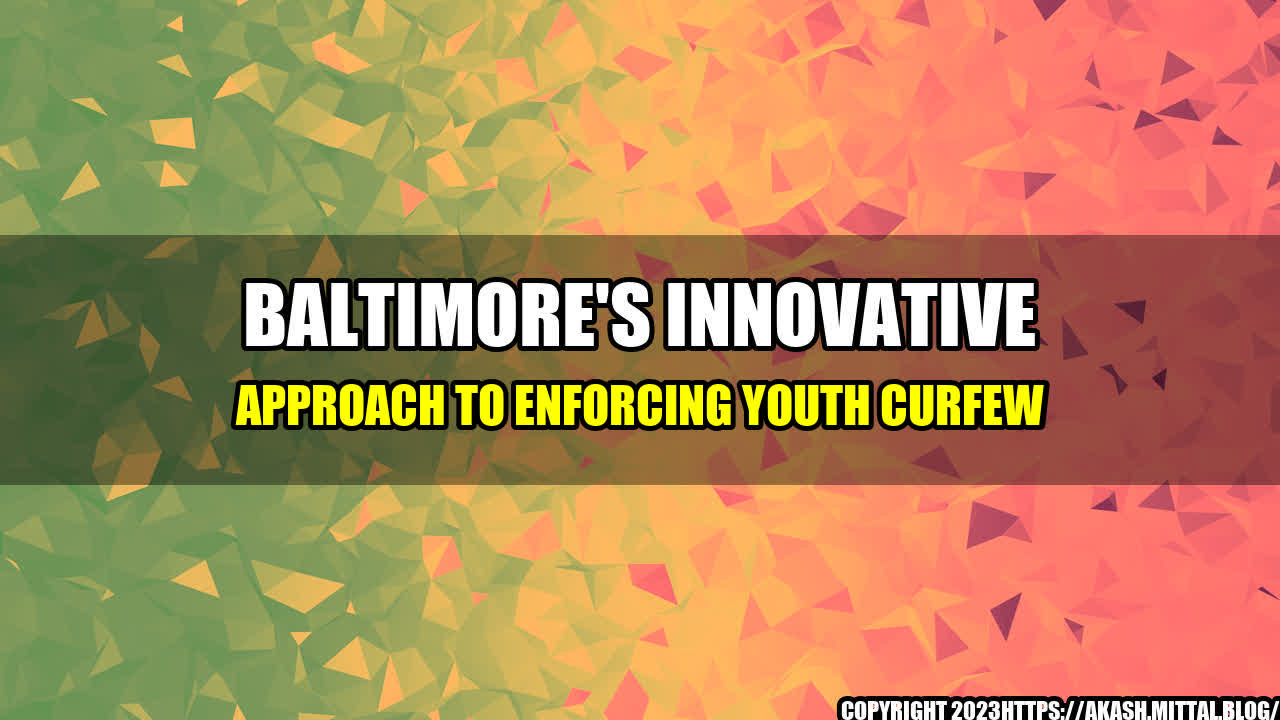
It was a warm summer evening in Baltimore, a city notorious for its high crime rates. As dusk settled in, a group of teenagers loitered on a street corner, enjoying the balmy weather. Suddenly, a police cruiser pulled up, and a stern-looking officer stepped out. The teenagers froze, anticipating the worst.
To their surprise, the officer greeted them with a smile and asked their names. As they exchanged pleasantries, the officer explained that they were violating the city's youth curfew, which required anyone under 14 to be off the streets by 9 pm, and those aged 14-16 to be off the streets by 10 pm on weeknights, and by 11 pm on weekends. However, instead of arresting them or issuing a fine, the officer handed them a pamphlet that listed local activities and resources for young people.
This is the new face of Baltimore's juvenile curfew. In an effort to reduce crime and improve outcomes for young people, the city has adopted a novel approach that relies on social workers, rather than police, to enforce the curfew. This approach has yielded promising results, as more young people are being connected with support services, rather than being criminalized.
Traditionally, curfew enforcement has been a police function. However, research has shown that this approach can be counterproductive, as it criminalizes young people and exacerbates existing inequalities. By contrast, a social work-based approach focuses on connecting young people with resources and support services, rather than punishing them.
The benefits of this approach are manifold. First, it reduces the likelihood of young people being pulled into the criminal justice system, which can have long-term consequences for their life chances. By directing young people towards support services, they are more likely to receive the help they need to address underlying issues such as poverty, mental health, and substance abuse.
Second, a social work-based approach can reduce the strain on police resources. Instead of spending time and money on curfew enforcement, police can focus on other crime prevention activities, such as community policing, intelligence gathering, and problem-solving.
Finally, a social work-based approach can build trust between young people and law enforcement. By approaching young people with empathy and respect, social workers can help to demystify the police and reduce feelings of hostility and suspicion.
Baltimore's social work-based approach to curfew enforcement has already yielded promising results. For example:
These figures are a testament to the effectiveness of a social work-based approach to curfew enforcement. By connecting young people with support services, the program has not only reduced crime, but also improved outcomes for young people.
In conclusion, Baltimore's social work-based approach to curfew enforcement is a model that other cities should consider emulating. By focusing on support services, rather than punishment, the program has reduced crime, built trust between young people and law enforcement, and improved outcomes for young people.
Here are three reasons why a social work-based approach makes sense:
By shifting the focus from punishment to support, we can create a safer and more equitable society for all.
Here are some useful resources for more information:
Here are some relevant hashtags:
Category: Law and Society
Curated by Team Akash.Mittal.Blog
Share on Twitter Share on LinkedIn